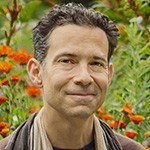
Library Resources with society
Intermediate Skill Level
Article
4 - 6 minutes
In groups, relationships and society we may not want to dominate or take away from others’ access to power, to choice, to participation in decisions, nor to shaping the vision and direction of the dynamic. And yet how do we do it anyway without knowing it? Discover how privilege operates on a societal level and becomes so invisible in groups. Learn why the conversation is usually excruciating for members of both privileged and under privileged.
Details...Intermediate Skill Level
Article
12 - 18 minutes
Why does NVC practice, and NVC training/coaching, appear to be not enough to bridge divides between people? This article takes a look at the trickle down effect of our societal conditioning, what we can add to our NVC lense, and what we can do "upstream" when NVC doesn't seem to be enough. Additionally, the article talks about unseen constraints that men, women and minority groups face in organizational settings...
Details...All Skill Levels
Article
39 - 60 minutes
If we're to have a better future, our biggest task will be to reexamine what the police are, their place in the system, and more. Police violence exists by systemic design. The myths of where the problems and symptoms lie with the police, capitalism, laws, government, citizens, class and racism --plus the relationship between all these-- is what keeps oppression ongoing on a mass scale. For change to happen, we'll need to find systemic leverage points, and use privilege to benefit those without it. Read on for more.
Details...All Skill Levels
Article
10 - 15 minutes
Human health is connected to health of ecosystems and other societies. Our wellness and liberation is found in our interconnection, kinship, reverence for life, and solidarity. Solidarity erodes through narratives, practices and policies that separate us from each other -- and this impacts societal functioning. The breakdown creates conditions for pandemic, racism, police brutality, exploitation in untold numbers, and extinction. Read on for how all is connected.
Details...Working for racial justice is a shift in perspective—a shift in understanding and empathy that leads to a change in our actions: to listen instead of talk, to follow instead of lead, to yield rather than dominate. And to accept that I will continue to mess up. Part of working to undo racism is having the humility to know when our own understanding is limited. Read on for more this, and how it relates to meditation -- plus personal and collective liberation.
Details...As we head towards impending collapse the relative ease, comfort and freedom of the global north will be harder to maintain. Because of growing anxiety including from people with systemic power, we can anticipate increasing attempts at authoritarian control over the population. We can see what's occurring now as dry run practice for what's coming soon. What may help us: finding choice, knowing when to choose death, and walking towards community and life.
Details...All Skill Levels
Article
6-9 minutes
Our everyday personal experiences of diminishment, and the destruction of our planet has a through-line. Societal traumas lead to us shutting down to avoid pain, and this limits us. The avoidance shifts our brains so we don’t see other beings, species and our planet as wondrous, precious and irreplaceable. Thus, we meet others with diminishment, oblivion, or abuse; trauma keeps passing on. This leads to being blind and mute, and to othering based on social location, and to destruction of our planet.
Details...All Skill Levels
Article
17 - 25 minutes
When we have privilege, we can have access to resources resulting from legal or social norms related to membership in a group -- independent of any (in)action, awareness of the disparity, the potential benefits to us, or the costs to others. Unhelpful ways of engaging with privilege are: denial/invisibility, guilt/shame, defensiveness, and entitlement. Helpful ways of engaging are: owning privilege, learning about privilege, opening to feedback, and stewarding privilege for benefit of all. To be helpful we need to engage with necessary (rather than unnecessary) discomfort.
Details...There are many polarizing issues we can resist and fight over. The word "resistance" can mean fighting against what we don’t agree with in counterproductive ways. It can also be the illusion and futility of mentally fighting against reality of 'what is'. But acceptance, non-resistance, of what is doesn’t mean powerless resignation. Another way to resist is to accept and love whole-heartedly, with empathy and care for the people doing the things we are resisting.
Details...Most people want to punish perpetrators of sexual violence. Unfortunately, punishment doesn’t lead to lasting widespread change. Rather, we can identify root causes and conditions that sustain violence. That means shifting from individual to systemic lenses, and from punitive to restorative responses. It means collective learning about how such acts are nurtured and persist. This can reduce the chance of it happening again.
Details...








